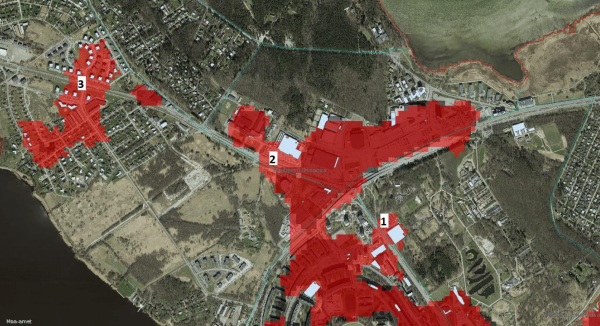Tallinn to test heatwave mitigation in Väike-Õismäe area
Tallinn is taking part in an international project to develop an effective package of adaptation measures to counter the increasing effect of heat waves caused by climate change, with Väike-Õismäe as the pilot area.
The Tallinn City Government has presented the City Council with a draft decision on participating in the project “Ways of Adapting to Climate Change – KNOWING” from 2022 to 2026.
“Our aim is to mitigate the risks of heat waves and increase the citizens’ capability to cope with them. The plan is to map and identify effective and feasible heatwave adaptation activities and solutions,” said Vladimir Svet, Deputy Mayor of Tallinn. “The solutions that work in the pilot area of Väike-Õismäe can be applied in other similar areas, such as Mustamäe and Lasnamäe. All of these areas are characterised by a high proportion of paved surfaces and potentially more vulnerable populations in heat waves.”
The Tallinn Sustainable Energy and Climate Action Plan 2030 identifies the increasing frequency and severity of heat waves as one of the biggest climate risks. Heat waves affect the health of the elderly population in particular and increased mortality rates in Estonia last summer.
The project is based on heat island studies carried out in 2014, 2018 and 2021 (in Estonian). The aim of the project is to develop climate change adaptation measures for housing, mobility, land use and landscaping. These will be combined to find the most appropriate measures for the pilot areas, which will be modelled using artificial intelligence and will involve affected population groups.
The project, led by the Austrian Institute of Technology, involves 19 partners, including the city of Granollers in the Spanish Autonomous Community of Catalonia, the city of Naples in Italy and the district of Arensberg in Germany, as well as research institutions, innovation centres and non-profit organisations. The city of Vienna completed a strategy earlier this year aimed at reducing heat island formation and the impact of heat waves, exemplifying a wealth of expertise in Austria that Tallinn can also put into practice in its future activities.
The project is funded by the European Union’s Horizon 2020 Framework Programme for Research and Innovation. The European Commission decided to fund the project in January this year at a cost of €54,500 in Tallinn, covered by external funding. The City of Tallinn’s participation in the project is led by the Competence Centre for International Projects of the Tallinn Strategic Management Office.

